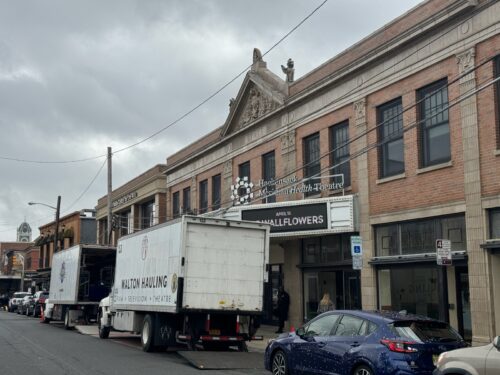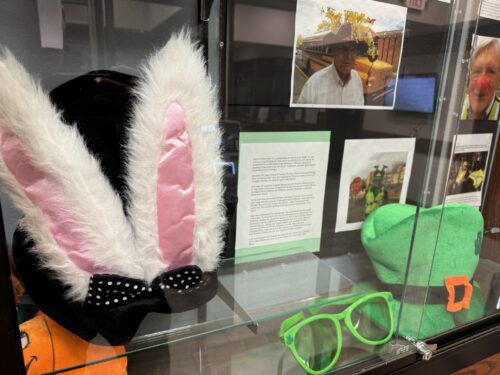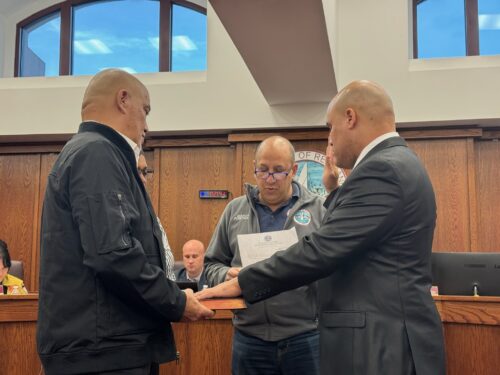By LINDA G. RASTELLI
Whats a Doc Martens lover to do when he cant find the styles of the British brand that he wants in the United States?
Readers of a certain generation or two may recognize the name. Before they were embraced by the pierced, pale, punk-rock set as well as skinheads in the mid-’70s, Dr. Martens was the industrial shoe brand of choice for Great Britain’s postal workers and policemen. They bought the footwear with the trademark yellow stitching (done with fishing line) for its practicality and durability, not urban cachet.
In America, Docs enjoyed a heady post-punk sales surge in the early 1990s. But the company that made them didn’t have a dedicated store Stateside, leaving devotees increasing unshod when the brand retreated from fashionability.
Dean Ross was among the sole-shattered. Raised by an English-born mother, he always “loaded up on Docs for the girls” when traveling in the U.K. after he’d married and become the father of three, he says.
Then, seven years, ago, sensing a business opportunity and tired of working in the Bagel Oven store that he still co-owns on Monmouth Street in Red Bank, Ross opened the Doc Shoppe, the first dedicated Doc Martens retailer in the United States.
In Fair Haven, no less a smokestack-free bedroom community that’s more Sinatra than Sex Pistols and light years away from London’s East End or New York’s Lower East Side, for that matter.
It almost didn’t happen. Corporate headquarters outside London initially put up resistance about supplying the official Doc Martens bags for Ross’s store. “They didnt really know what to do with me,” the Lincroft resident says with characteristic enthusiasm.
So how do Docs play in Fair Haven today? Ross says hes doing better than ever, largely because of sales to young professionals.
“We attract people wanting to wear comfortable shoes to work,” says Dee Ross, the youngest of three daughters he has with his wife, Sharyn, a nurse and medical examiner.
Although he’s branched out into Naot, Crocs, and other premium brands that sell well to his suburban customers, Ross says most sales are still Docs.
Not the steel-toed Docs favored at punk concerts, “in case you get your foot stepped on dancing in a mosh pit,” Dee says. Rather, the shoes in demand are from the new “Comfort Tech” line, with a flexible sole and available in three types of leather smooth, “greasy” and a soft napa.
The latter is gaining a following among those wanting to skip the break-in period well known to (and perhaps dreaded by) Docs wearers.
Some of the wilder styles that Ross cheerily points out, like a hot pink boot and a convertible shoe/boot adorned with flags, may not sell as well, but “they add color to the store.”
Customers come from across the tri-state area to find a store in a bland strip mall dominated by an Acme supermarket and a post office. There, Ross went for a “rough look” interior, with cracks painted on the walls, metal signs and steel fencing from Home Depot.
The floor was going to be cement but that was deemed “too radical for Fair Haven,” Ross says, so its carpeted.
Daughter Dee has set up an eBay store thats flourishing because of the weak dollar and sales to overseas shoppers. Even with shipping, U.K. customers still find it cheaper to order online.
In the store, though, clients get to revel in Dean Ross’ encyclopedic knowledge of all things Doc. Such as: Soon-to-depart British Prime Minister Tony Blair wears the “8053,” which features a padded collar around the ankle.
And beneath his flowing vestments, the late Pope John Paul II wore a pair of Doc boots, “1460s” in white when he had trouble walking. But despite entreaties from the manufacturer, says Ross, “he wouldnt allow himself to be photographed wearing them.”
Ross says he resists the entreaties of friends in Red Bank, who urge him to move a just little bit west of his toehold location.
“I like it here,” he says.























